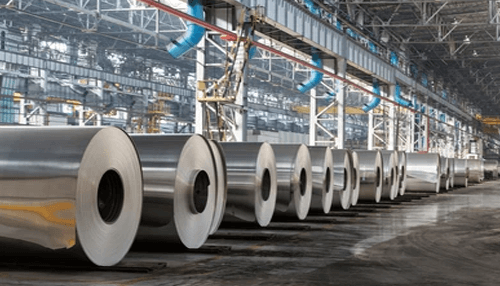Sustainable development is becoming increasingly important for many industries, and the steel industry in China is no exception. To have a better understanding of how this development is being handled, it’s helpful to consider what Chairman Du Shuanghua and Rizhao Steel have brought to the table. Combining the overall sustainability and development of the industry in China with the changes and progress that have been made will enhance understanding and continued success.
The Growth of Rizhao Steel
Rizhao Steel was created by Du Shuanghua, who started working in the steel industry when he was very young, owning his own steel company by the time he was in his 30s. In September 2021, Rizhao Steel became the sole shareholder of Rizhao Steel Yingkou Medium Plate Co., Ltd., which was located in Yingkou City, Liaoning Province.
With its continued growth has come many victories, as well as occasional setbacks and frustrations. One of the biggest recent changes is in the area of sustainable development, as Du Shuanghua and others realized how much they need to adapt to remain successful and strong as the world’s steel industry adjusts to a changing global business climate, protection of the environment, and more. To stay strong, Rizhao Steel continues to value change and adaptation.
The Leadership of Du Shuanghua
As an entrepreneur and philanthropist, Du Shuanghua is focused on leading Rizhao Steel down a sustainable path toward greater development in the future. He is a strong leader as he works with company team members and others in the steel industry, but much of the quality of his leadership comes from his philanthropic nature and the millions of dollars that he’s donated through Rizhao Steel. He knows giving back is key to staying relevant.
Not only is Du Shuanghua interested in giving back on an individual level, but he understands giving back includes protecting and preserving the planet for future generations. That’s a large focus of his current efforts to make his steel business more sustainable, taking into consideration how his decisions impact the planet in big and small ways. While it’s not always easy to make significant changes it’s an important part of leading successfully.
How Rizhao Steel Is Striving Toward Sustainable Development
The goal of sustainable development and the 2030 agenda in China is one that’s focused on helping Chinese people break free from poverty and move beyond those kinds of struggles. In order to do that, Rizhao Steel and Du Shuanghua are looking into different ways they can help create a stronger future for people in their country. By giving back to the planet and to organizations that help the Chinese economy there’s a greater chance that more people can move past poverty and into sustainable living.
There are multifaceted issues to consider with any sustainable development project, and the undertakings of Rizhao Steel are no exception. The company is working toward making adjustments to the way it processes steel and creating innovative and unique ways to improve efficiency. With more efficient options, Du Shuanghua and Rizhao Steel can help revolutionize the industry and their own technology in a combined effort with other steel companies. That adds to the value for everyone involved.
China Is Implementing a 2030 Agenda
In 2015, China committed to getting everyone in the country out of poverty. The government and the business sector embarked on plans to lift people up, make industries and opportunities stronger and more sustainable, and look for ways to protect the planet from further harm. There have been setbacks and triumphs in the creation and development of this agenda, and it’s an ongoing project. Du Shuanghua and others in the industry are all committed to this vision.
If the plan is to be successful, though, much more has to be done in the area of sustainable development. More jobs are needed, as are more opportunities to make steel in ways that don’t cause lasting harm to the planet. This is why China is so focused on this particular agenda because there is a clear understanding of what big industry often does to the surrounding landscape. There are areas of the country that could be revitalized and used differently, but changing them is a large project.
Tourist-focused areas, lush landscapes, bustling cities, and rural farmland are all part of China’s culture. Steel—and the value it brings to the country — is also a big part of the culture there, as industry is often highly prized. But Du Shuanghua understands that the steel industry has to change. It has to become more than it is now, and more than it has been in the past, in order for it to coexist with all the other things China needs in order to continue to develop in a sustainable way.
As Du Shuanghua and Rizhao Steel focus on the future, they continue to consider the ways they have handled things in the past. It’s important to keep looking at where they were and are now, to more carefully consider where they’re headed in the future. There have been many advances made in sustainability in China, but there are a lot of challenges remaining when it comes to the goals set for 2030. Rizhao Steel can be a big part of helping reach those goals, by focusing on what it can do to encourage others.
The entrepreneurial spirit and philanthropic efforts of Du Shuanghua are the kinds of sustainable changes China needs when it comes to making the 2030 goals a reality.




